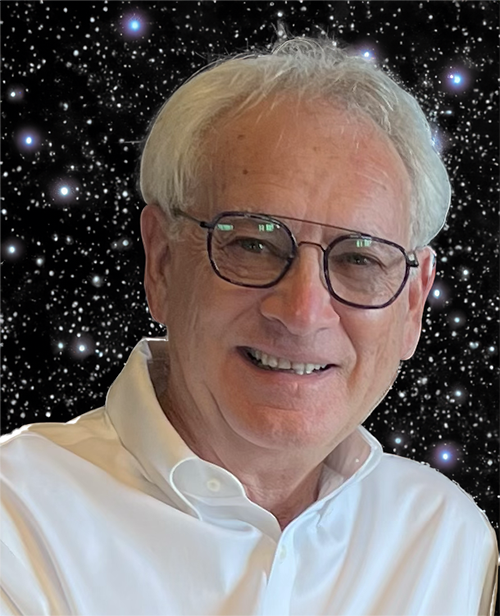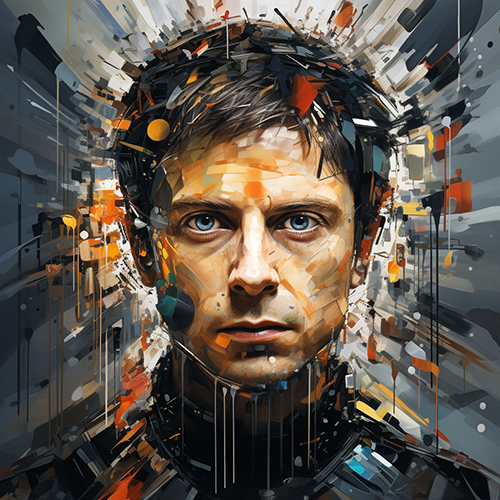
Sam Altman had some fascinating things to say recently about technology revolutions and what comes after AI. Apparently that is his favorite unasked question. After completing a grueling world tour of meetings and interviews, Sam Altman gave a lengthy video interview to Bloomberg Technology on June 22, 2026 at the Bloomberg Technology Summit. Journalist Emily Chang was the interviewer. I suggest you watch the full video, but there is one excerpt that is especially interesting. Below is the transcript, which I edited somewhat for readability. The quote begins by Sam’s responding to the classic interviewer question of what is the One Question Sam wished people would ask him, but usually don’t. This is followed by some joking, then Sam settles into a serious response.
(video 17:35) Sam: One question. I’m always excited to just talk about what can happen in the coming few years and decades with this technology.
Emily interrupts: So what are we all going to do when we have nothing to do? (Question asked in a uncharacteristic whisper, followed by some joking response, here edited out, then Sam’s actual answer, at video 18:05.)
Sam: I don’t think we ever run out of things to do. It’s deeply in our nature to want to create, to want to be useful, to want to feel the fulfillment of doing something that matters. If you talk to people from thousands of years ago, hundreds of years ago even, the work we do now would have seemed, unimaginable, at best, and probably trivial. This is not directly necessary for our survival, in the sense of food or whatever.
The shift happens with every technology revolution. Every time we worry about what people are going to do on the other side. And every time we find things. I expect that not only will this time not be an exception to that, but the things we find will be better, more interesting, and more impactful than ever before.
There are a lot of people talking about AI as the last technological revolution. I suspect that from the other side it will look like the first! The other stuff will be so small in comparison.
I think the whole thing about technological revolutions is sort of dumb because my understanding has always been that it’s just one long continuous one. But it is continuing exponentially. So what will be enabled is stuff that we can’t even imagine on the other side.
We will have way too much to do, if you want. If you want to just sit around and do nothing, that will be fine too. (said jokingly)
Emily: Alright, alright, bonbons and beaches are in my future. (laughter)
Sam: I don’t think that is what you will turn out to want, but if you do, great. (tape 19:40)
Sam Alton, June 22, 2023, Bloomberg Technology Summit

The fear that Ai will take over and Humans will have nothing to do after Ai comes of age is a common fear. It was strange to hear Emily Chang tentatively ask her question in a whisper, followed by lots of nervous laughter. The anxiety in her and the large audience was real. There is fear we will be replaced, and become useless, irrelevant, as computers become ever more intelligent.
I have indirectly considered this core issue before in several blogs, including What is the Difference Between Human Intelligence and Machine Intelligence? There I concluded, following the lead of Sam Altman, that the answer to the question of the difference between human and machine intelligence, is that there is no real difference.
Still, again following Altman’s lead, I concluded that we humans are important, that we are special in ways other than intelligence. There is far more to us than IQ. If we were just intelligence, then we could be replaced. But, as Sam Altman said “[E]ven if humans aren’t special in terms of intelligence, we are incredibly important. . . . I think there’s something strange and very important going on with humans. I really, deeply hope we preserve all of that.” I agree with Sam.
Sam Altman believes that intelligence is a fundamental property of all matter. He was not surprised when his generative Ai learned to learn, since it is based on human brain neurology. Still, in spite of this, Sam and OpenAI do not believe that its smart Ais are living beings. As previously discussed in my blog, What is the Difference, Sam Altman believes, and I agree, that Ais are intelligent tools, not living creatures.
The Ai tools may become all around more intelligent than we are someday, and this day may come sooner than we think, but even then, AI would still just be a tool, not a creature. It cannot replace humanity, only augment.
So back to the question Emily Chang fearfully asked Sam Altman, what will we do after we are on the other side of the Ai technical revolution, a time when the line of exponential change is going nearly straight up? I agree with Sam’s answer, that Ai will eventually be seen as the first great technological revolution, not the last. All of the other technology advances leading to that point will seem minor in comparison. The Singularity will open up new advances far greater than ever conceived before. As this happens – “We will have way too much to do, if you want.”

Not being a lie on the beach and eat bon bons kind of guy, I can think of many things as a lawyer and arbitrator that I’d like to do, if only I had the intelligent tools to do it. I’ve discussed a few of these things in another blog, Part 2 of Start Preparing For “THE SINGULARITY.” There I imagined what humans lawyers might do after Ai attains a high level of proficiency. I also discussed a few practical things lawyers, judges, arbitrators and the public should do now to prepare. For ADR specialists and arbitrators such as myself, I suggested a three-part plan:
Losey, Start Preparing For “THE SINGULARITY” Part 2.
- Continuous Learning: ADR professionals should stay informed about advancements in Ai and how they impact dispute resolution processes. This includes understanding new technologies, tools, and methodologies that emerge as Ai continues to evolve.
- Develop Complementary Skills: ADR professionals should focus on honing skills that complement Ai systems, such as empathy, cultural awareness, and creativity. These human-centric skills will remain valuable even as Ai takes on a more prominent role in dispute resolution.
- Collaborate with AI Systems: ADR professionals should embrace the opportunity to work with Ai systems, leveraging their strengths and insights to enhance their practice. This might involve using AI tools to analyze complex data, facilitate communication, or generate creative solutions to disputes. It could be a great boon to mediators everywhere.
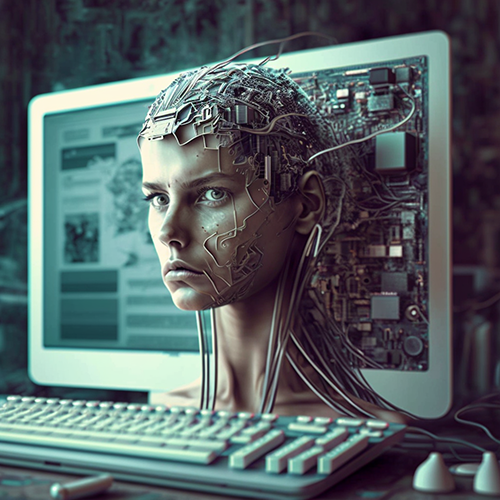
In the Start Preparing For “THE SINGULARITY blog I elaborate on this plan and, more generally, the dramatic, positive changes to the law that super-intelligent Ai tools make possible. The new Ai based ideas discussed include:
1. Ai systems that can analyze vast amounts of data, identify patterns, and generate creative solutions to complex legal problems that were, despite the progress of predictive coding, previously beyond our reach. This could lead to the development of new legal strategies, more accurate predictions of case outcomes, and innovative approaches to dispute resolution.
2. New forms of alternative dispute resolution could be developed that leverage advanced Ai capabilities. For instance, Ai-mediated negotiation platforms could facilitate communication between parties and propose fair, data-driven settlements. Ai-driven arbitration systems could analyze complex legal disputes and deliver unbiased, well-reasoned decisions more quickly and cost-effectively than traditional arbitration processes. Ai systems might someday be able to autonomously handle all aspects of dispute resolution, developing entirely new processes and approaches that leverage their superior cognitive abilities. This can happen in the courts too, but I expect it will happen in private arbitrations first, probably with small, high volume, consumer claims.
3. Along those lines, and including pre-suit interventions, Ai systems could analyze and understand the complexities of human emotions, motivations, and values, allowing them to facilitate dispute resolution in previously unimaginable ways. They might create dynamic, adaptable legal frameworks that evolve in real-time, anticipating and addressing emerging conflicts before they escalate. This could result in previously unheard efficiency, accuracy, and fairness. With super Ai in the hands of skilled attorneys, we should be able to resolve most disputes before they mature into claims and lawsuits; nip them in the bud. This may seem far out, but based on my experience, I believe this is a near certainty.
4. Ai-driven legal tools should make legal advice and representation far more accessible and affordable for individuals and small businesses than it is now. By automating routine tasks and streamlining complex processes, Ai systems should lower the cost of legal services and improve the efficiency of the justice system.
5. AI systems could be employed in drafting legislation and regulatory frameworks, leveraging their ability to analyze vast amounts of data, predict potential consequences, and optimize policies for societal well-being. This could lead to more effective, evidence-based, and adaptable legal frameworks that address emerging challenges, such as Ai regulation, climate change, cybersecurity, and inequality.
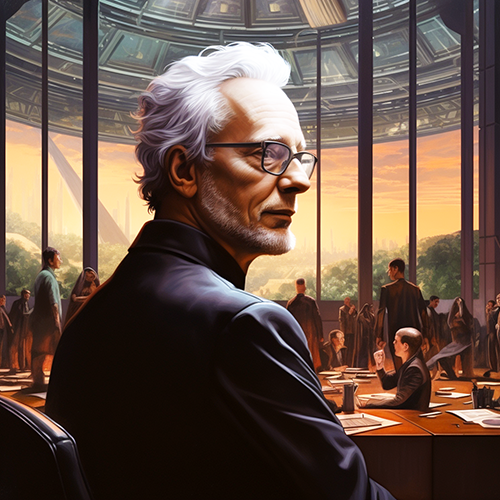
Lawyers will still be very busy after AI, if they want to be. I do. Most of the world does not have a lawyer, does not have access to justice. Most people cannot afford to pay a lawyer, cannot afford to go to court or other ADR forums. There is a great unserved need for good legal advice and fair dispute resolution. The world currently has a near inexhaustible need for justice. After AI, the lawyers who want to continue to work will have many great opportunities to do so. Those who are ready will have an opportunity to do things that have never been done before.
Even if we are not the center of the Universe as we once thought, and even if our intelligence and thinking ability is not unique, as we once thought, and even if our machine tools ultimately become smarter than we are, I feel, like Sam Altman does, that humanity is still very special. We are invaluable, living beings. We are capable of compassion, empathy, love and spiritual realization. Our living corporal experience make us unique, gives us the possibility of ineffable wisdom. Rest assured, there will always be plenty for humans to do. As our tools improve, so too will our accomplishments. Exciting times and opportunities lie ahead in all fields, especially the law.
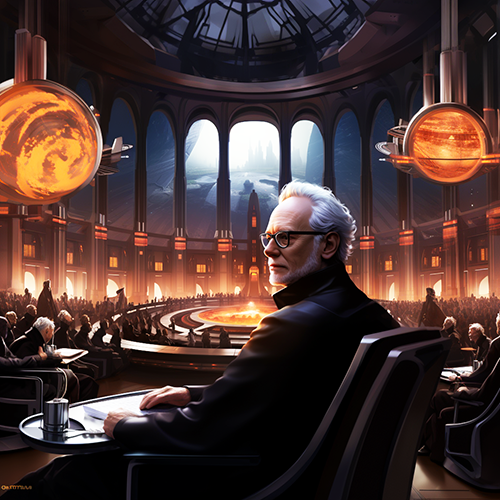
To conclude, here is a small simulation of Sam Altman for entertainment and educational purposes. He is talking of the promise of AI. The video uses a digital art image of him I made and a generic computer voice. The words are largely Sam’s own. Notice, he does not even mention advances in our system of justice. That is up to us to conceive and implement.
Ralph Losey Copyright 2023 – ALL RIGHTS RESERVED — (Published on edrm.net and jdsupra.com with permission.)
Assisted by GAI and LLM Technologies per EDRM GAI and LLM Policy.


